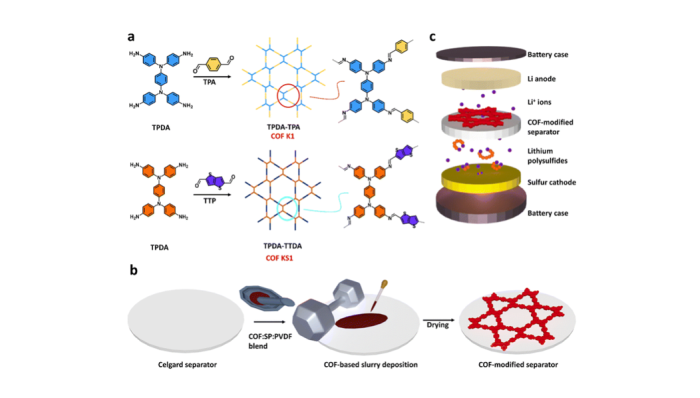We are excited to share a new publication from our GREENCAP partners UNISTRA and BED: “Covalent organic framework-based Li-S batteries: functional separators promoting Li+ transport and polysulfide trapping”, featured in Journal of Materials Chemistry A.
Lithium–sulfur batteries (LSBs) are emerging as a promising alternative to lithium-ion batteries due to their high theoretical specific capacity. However, their performance is often limited by the “shuttle effect” caused by soluble polysulfides. This study explores the use of Kagome-shaped imine-based covalent organic frameworks (COFs) as functional modifiers for polypropylene separators in LSBs.
The research introduces a COF-based separator, KS60@Celgard, which effectively mitigates the shuttle effect and enhances lithium ion diffusion. This modified separator delivers a specific discharge capacity of 850 mA h gS⁻¹ at C5 and boasts a high Li+ diffusion coefficient of 1.6 × 10⁻⁷ cm² s⁻¹. The study further reveals that the COF content and linker type significantly influence battery performance by reducing polysulfide content and improving electrocatalytic activity.
Overall, this work underscores the potential of COF-modified separators to optimize LSB performance by balancing polysulfide trapping, Li+ transport, and electrocatalytic functionality.
Congratulations to our UNISTRA and BeD colleagues on this remarkable achievement!
Read all GREENCAP publications here.

